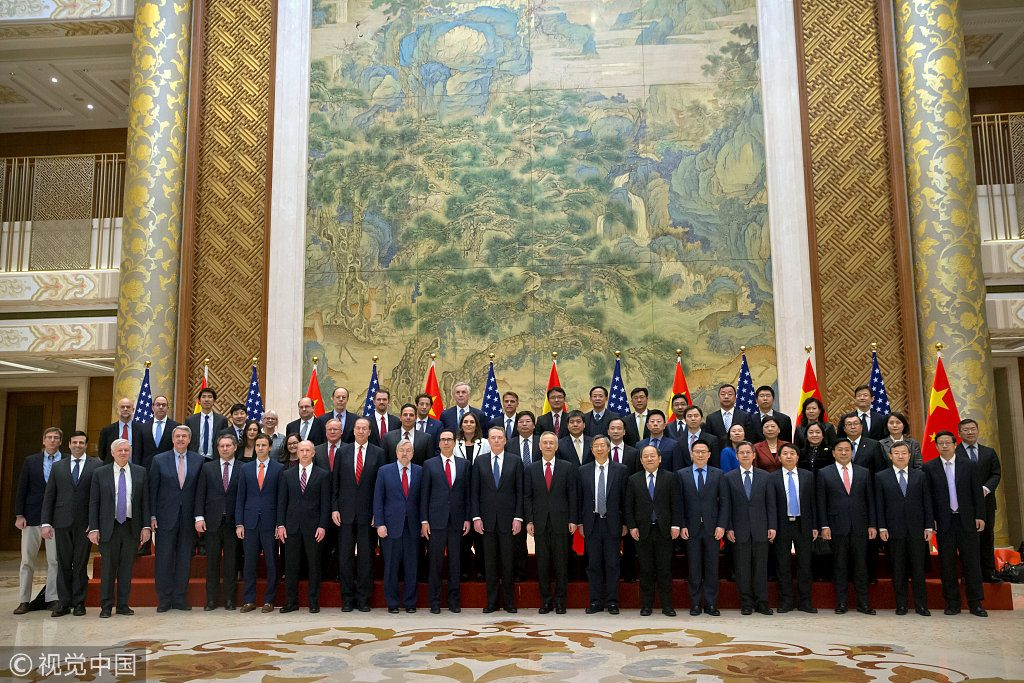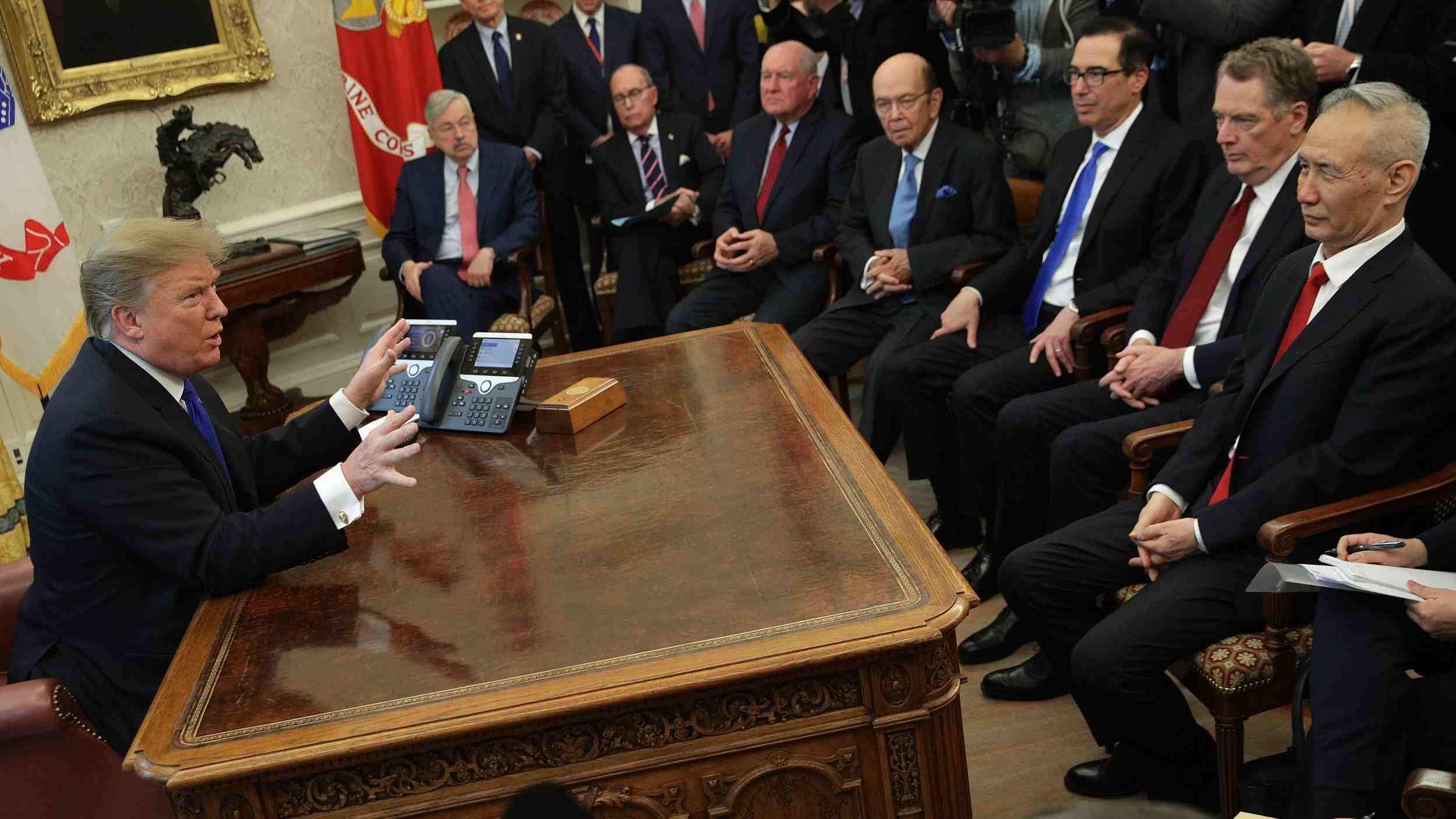
Opinion
21:52, 09-May-2019
There can be no junior partners in healthy trade talks
Adam Garrie

Editor's Note: Adam Garrie is the director of the UK-based global policy and analysis think tank Eurasia Future and co-host of talk show "The History Boys." The article reflects the author's opinion, and not necessarily the views of CGTN.
U.S. President Donald Trump is known for creating last minute surprises as part of his overall negotiation tactics. This is true in respect to negotiations with fellow American politicians and U.S. companies, and it is also true in respect to negotiations with foreign partners.
By definition, one cannot predict the timing of a surprise but based on Trump's habits, it would have been wise to assume that he was not going to allow a gradual end to trade talks without first doing something to upset the comparative placidity of the situation.
That being said, while this tactic of surprise is deployed as a "scare tactic" among certain domestic and foreign negotiating partners, when it comes to China, there is something different at hand.
America's unilateral zero-sum mentality, whose existence long predates Trump's political rise, has led to Washington thinking that it has a unique upper hand in negotiations with any and all foreign powers. While China acknowledges that the U.S. remains the world's largest economy in terms of overall GDP, it is universally acknowledged that sometime before mid-century, China will overtake the U.S. in this statistic just as it already has in respect to GDP in terms of purchasing power parity (PPP).

A group photo of the Chinese and U.S. trade negotiators at Diaoyutai State Guesthouse in Beijing, China, February 15, 2019. /VCG Photo
A group photo of the Chinese and U.S. trade negotiators at Diaoyutai State Guesthouse in Beijing, China, February 15, 2019. /VCG Photo
Throughout the second half of the 20th century, the top world economy was always the United States. Other leading economies were the Soviet Union (prior to 1991), Japan, Germany, France and Britain. But while the USSR, Japan, Germany, France and Britain were never able to come close to overtaking the United States, based on current IMF and independent projections, China is on course to do what none of the economic powers of the late 20th century were able to do.
This new reality is one of the reasons why Donald Trump has asked Americans to make their country "great again." According to the zero-sum mentality, America's gradual shift from first to second largest economy in terms of GDP represents a cataclysm rather than a mathematical shift in the natural global balance of economic power.
By taking the long view, China does not react to such developments with hysteria, whether this be hysterical joy or hysterical anxiety. This is why China's reaction to Trump's new tariffs has been incredibly mild by international standards.
Some countries would have simply cancelled talks all together while most countries would have postponed this week's discussions in disgust. China has not done so but has instead calmly reiterated a firm position which is indicative of the facts of the situation.

U.S. President Donald Trump (L) with Chinese Vice Premier Liu He (1st R) at the White House, Washington, February 22, 2019. /VCG Photo
U.S. President Donald Trump (L) with Chinese Vice Premier Liu He (1st R) at the White House, Washington, February 22, 2019. /VCG Photo
In the classic tradition of preparing for the worst while working to achieve the best, China is ready to demonstrate to the U.S. that while it remains Beijing's priority to forge a win-win trading agreement in the spirit of economic openness within the framework of a rules-based system, China will not flinch if Trump continues to wage a "total trade war."
While China treats all partners as equals in terms of diplomatic relations and trading relations stemming from the Belt and Road Initiative, the U.S. does not often use such tact and grace in its negotiations. Because of this, China is prepared to show rather than tell that it will not be treated like a junior partner in negotiations with the United States.
The U.S. often revels in the cowboy traditions of its erstwhile Wild West, but China is familiar with Sun Tzu's ancient Art of War. China wants to achieve a win-win outcome but if the U.S. wants a trade war, China is not going to surrender and will continue to fight until common sense is the true winner.
(If you want to contribute and have specific expertise, please contact us at opinions@cgtn.com.)

SITEMAP
Copyright © 2018 CGTN. Beijing ICP prepared NO.16065310-3
Copyright © 2018 CGTN. Beijing ICP prepared NO.16065310-3